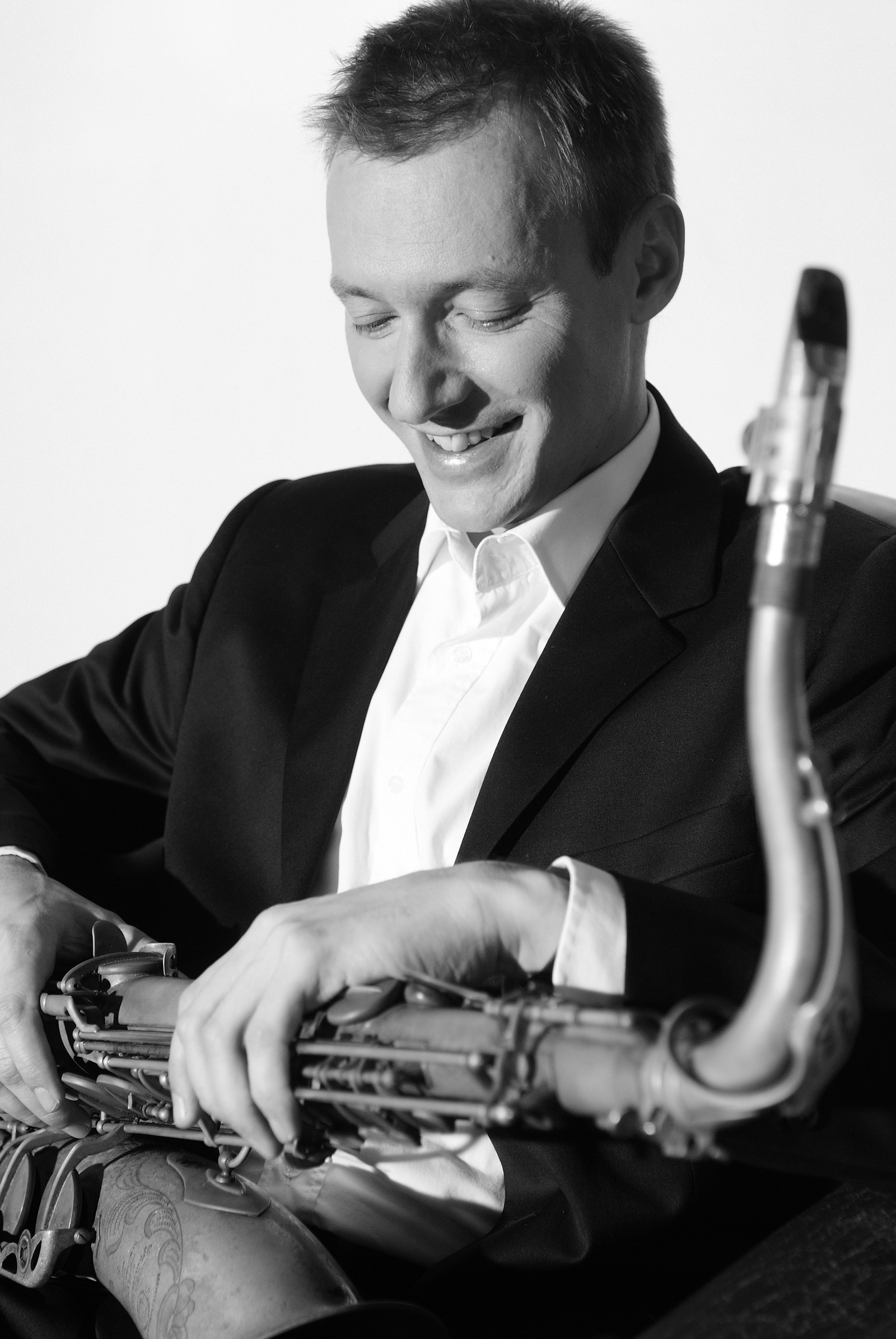Have sax, will travel. Will play jazz and conduct saxophone clinics and workshops across France, Italy, Portugal, China, Japan, Korea, Mongolia… Vietnam and Cambodia. And that’s just this year. Danish-born, Paris-based saxophonist Martin Jacobsen collects passport stamps and luggage stickers in the way the rest of us collect coffee shop loyalty card points. To Phnom Penh, Ho Chi Minh City and Danang this November he brings with him two Parisians of Vietnamese heritage, Duylinh Nguyen on bass and Vinh Lê on piano. He was kind enough to answer some questions.
Is this your first visit to Indochina?
Yes, it is. Apart from Singapore and Indonesia I’ve never performed in this part of Asia and I’m looking very much forward to it.
What first brought you to Asia? Travel or music or both?
I only travel as a musician, but each time I go abroad to perform I say to myself that I should come back one day and spend some time on my own, without performing. It just never happens! On the other hand, as soon as I have a day off during tours I’ll always go and visit something. A few weeks ago on a day off, I visited the beautiful Nagoya Castle in Japan.
So what’s the state of jazz like in Ulaanbaatar?
Mongolia has been independent for only 20 years and jazz is still very new. I’ve in fact been the first ever jazz educator to come to Mongolia on a regular basis for now a year. Ulaanbaatar’s first jazz club opened a few months ago, the small yearly jazz festival is getting bigger and the Minister of Culture, a woman, loves jazz and helps the scene. Mongolians are an incredibly musical people and their own traditional music scene is very strong. They respond very well to jazz – rhythm, melodies, harmonies – and it’s really exciting to see how the scene is unfolding there.
Despite the former King, Norodom Sihanouk, having been a prolific jazz composer and songwriter in the ’50s and ’60s, in Cambodia jazz today is pretty much exclusively an expatriate scene, both for players and audience. Do you find that in, say, Mongolia or Korea?
Because of big social differences in Mongolia, the jazz audience is often made up of more well-off Mongolians or foreigners living there, but with the new jazz club (run by Mongolia’s only jazz pianist) it’s now possible for everyone to come and listen to jazz. It’s great to have some of your young students sitting in the audience. Before, when we played at some of Ulaanbaatar’s upscale venues, they couldn’t afford to come. That’s wrong: jazz should be for everyone. The jazz audience in South Korea is almost exclusively Korean – and even mainly young people. There are numerous jazz clubs in Seoul – the oldest is from 1976 – and the jazz scene there is very rich and exiting and the best in Asia after Japan.
The reviews I’ve seen all talk about your Coltrane influence, but playing jazz tenor that would be hard to avoid. Do you feel you have Trane on your shoulder?
That’s a good question. It’s true that I’ve been very much influenced by the early (mid-1950s) John Coltrane. I’m a self-taught musician and mostly studied saxophone from listening to my records. I also listened a lot to Dexter Gordon, who lived 12 years in Copenhagen and his spirit was sort of hovering over the jazz scene there, even in the late 1980s when I started playing the saxophone: Sonny Rollins, Joe Henderson, Hank Mobley to name but a few. It’s important to be aware of your influences and find new inspirations. These last few years, I’ve been listening a lot to contemporary saxophonists like Jerry Bergonzi, Michael Brecker, Chris Potter. Miles Davis once said that you have to try to imitate other players, hoping that you can’t do it. He tried to imitate Terry Clark, but couldn’t – and instead ended up becoming Miles Davis.
WHO: Martin Jacobsen Trio
WHAT: Jazz, man
WHERE: Doors, Street 84 & 47 (Nov 7) and Sofitel, Sothearos Blvd (Nov 12)
WHEN: November 7 (Doors) & 12 (Sofitel)
WHY: There ain’t nothin’ like a Dane
